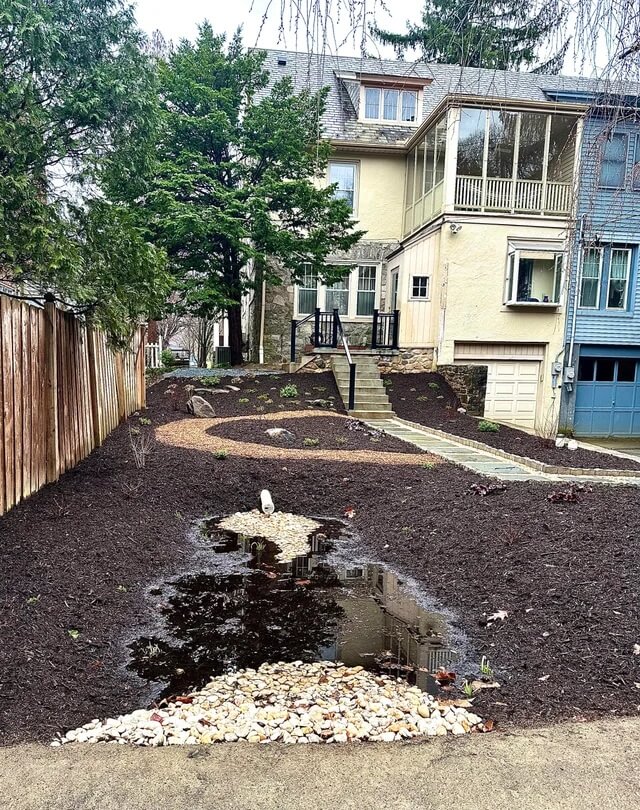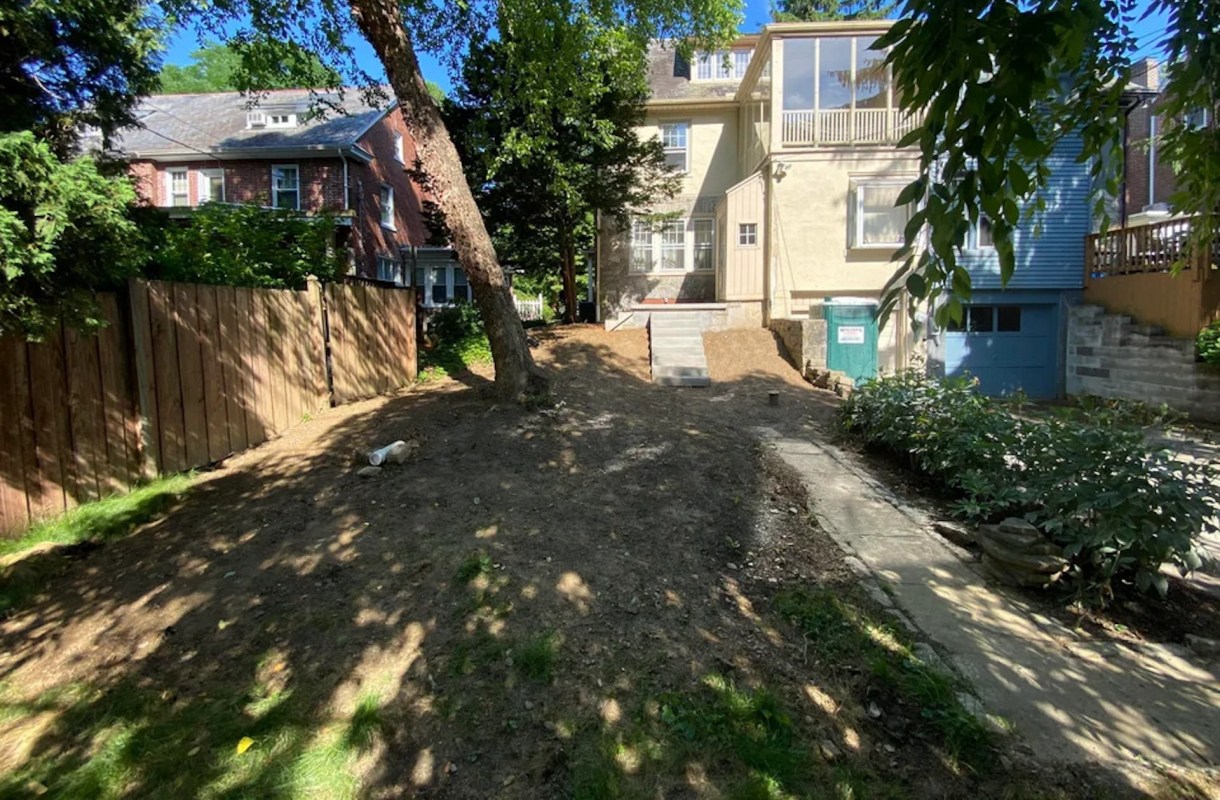The owner of a conservation landscaping company posted before-and-after pictures of a stormwater garden installed to help prevent runoff issues.
Reddit user TreeThingThree uploaded the images to the r/landscaping community, and they showed a remarkable transformation from a traditional monoculture lawn covered in mud and sediment to a xeriscaped garden.
The landscaper noted the 80-cubic-foot space was excavated three feet down and backfilled with 13 yards of "best management practice" soil that would help to prevent erosion. It also featured a rain garden to collect excess water.

"When we showed up, the client was having major storm water runoff issues," the landscaper commented. "We just got over [two inches] of rain and he's had no problems whatsoever, and the rain garden is functioning better than expected. Very happy with this final product!"
The landscaper also took advantage of permeable clean stone for the walkway and used mulch to mitigate weed growth and retain moisture. Additionally, around 220 native plants were added — though they were yet to sprout when the pictures were taken.
"It doesn't look like much now, but there's so much potential here," the landscaper said about the new plants.
Not only will those native plants help to absorb water following flooding events, but when they grow, they will also attract pollinators that are vital to a healthy ecosystem and help the global food supply. What's more, the plants will be more suited to the local weather conditions and will require less maintenance than the previous lawn.
It was a stunning makeover, and the homeowner will welcome the benefits.
A warming planet is leading to stronger and more intense storms, which makes flooding a problem in certain communities. It's obvious from the "before" picture that mud runoff was causing trouble at the property, but the xeriscaped area will better deal with excess water.
"This should look stunning when all the plants are mature and be buzzing with life," one Redditor said.
"Great, create a rain garden with bio filtering plans to filter nutrients and pollutants," another added.
Join our free newsletter for easy tips to save more, waste less, and help yourself while helping the planet.









